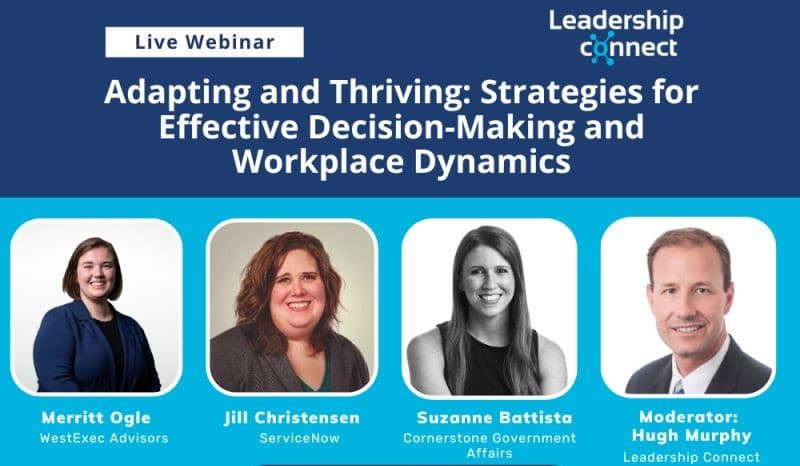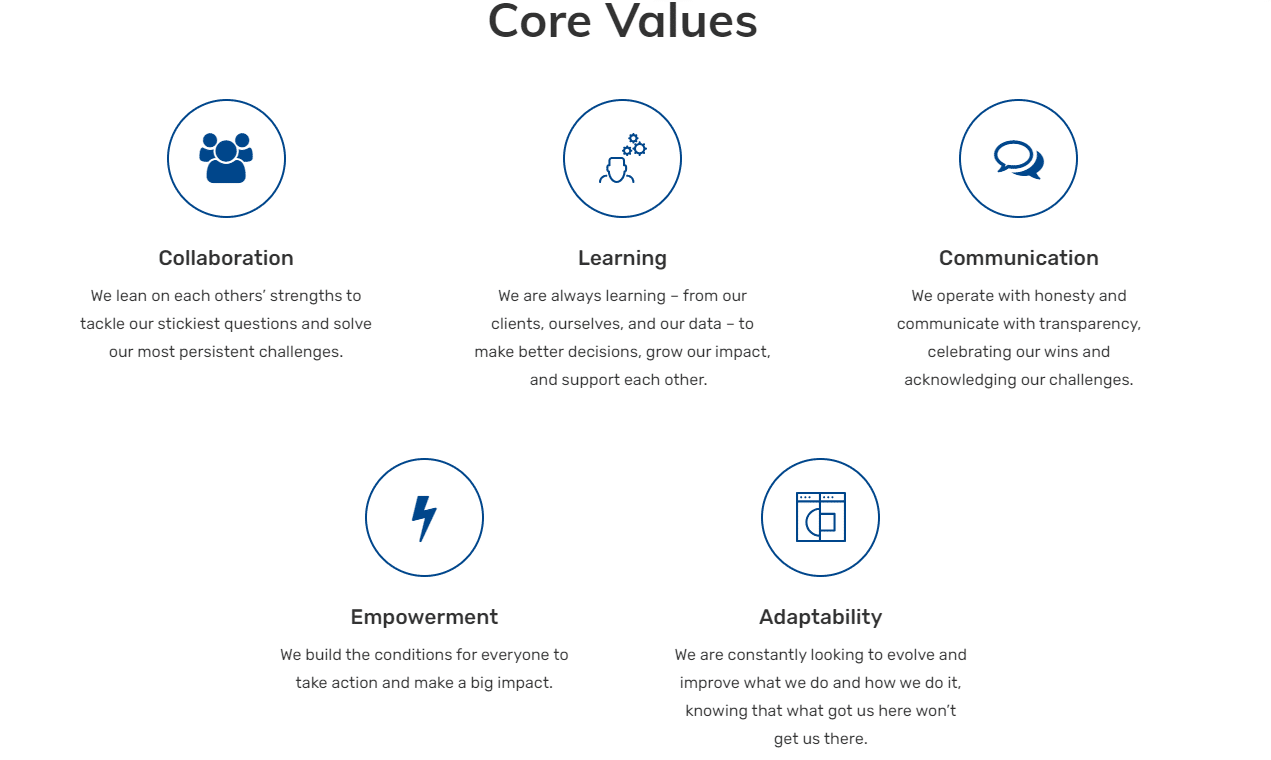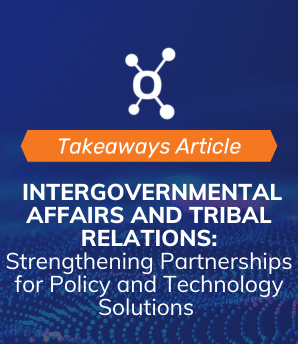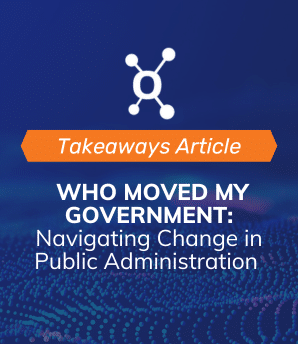Creating positive workplace dynamics through informed decisions is pivotal for any leader or job seeker. On June 27, Leadership Connect hosted a webinar dedicated to this important topic that delved into how employees and leadership can cultivate a positive workplace with a foundation of respect that promotes understanding and retention in the workforce.
Our expert panel, moderated by Leadership Connect’s very own Hugh Murphy:

Keep reading to find out how to create a positive work environment as a leader, or how to choose the right cultural fit for you if you’re on the job hunt. You’ll also learn some valuable tips and tricks to perfect the art of decision-making from the experts themselves. Missed the conversation and want to learn more about these takeaways? Check out the recording here.
A guide to a healthy workplace dynamics: A look into Leadership Connect’s core values
Our panelists took the time to reflect on their careers and current working environments to show our audience the best ways to foster and workforce that is rooted in the respect and value of employees as people. As the conversation unfolded, each panelist touched on the five Core Values that Leadership Connect upholds daily and promotes amongst the entire company:

Communication
The panelists could not overstate the importance of communication when setting expectations and overcoming workplace challenges. Communicating all expectations through hiring, onboarding, and retention efforts is the best way for management to make sure each employee is working to their full potential in an environment that best suits their needs.
Collaboration
Building off their discussion on communication, the panelists then emphasized the importance of collaboration, especially in a hybrid environment. By making a concerted effort to collaborate with remote workers, employees and managers alike can promote a warmer, more welcoming workplace for everyone involved.
Learning
The panelists stated that with deliberate communication, coworkers can learn each other’s working styles and get a better sense of how they can build off those skillsets to maximize efficiency, success, and overall morale in the office (remote or in person).
Empowerment
While giving their thoughts on effective leadership methods, the panelists discussed the importance of delegating. They encouraged any worker in leadership roles to get comfortable with delegating more to help employees grow and take more responsibility to foster a sense of importance and value in each employee.
Adaptability
Our audience heard the panel’s thoughts and advice on overcoming generational dynamics that previously dictated the workforce. They encouraged listeners to place importance on a work-life balance and promote understanding of each employee’s circumstances and preferred working environment, rather than simply demand everyone work in the office every day and work in a certain manner. They also touched on the idea of adaptability regarding emerging technologies. They said that keeping an open mind about things like AI or scheduling tools to reduce menial tasks can help your team as employees will have more time to expand their skillsets and grow in their careers.
Transparency: Leadership Connect’s vision
The last food for thought that our panelists gave reflects a key part of Leadership Connect’s vision statement: transparency in the workforce. The panel encouraged the audience to manage all expectations starting with the hiring process by being honest about work culture and anything else that they feel an employee should know before coming onboard. This honesty promotes retention and ensures that employees will be cultural matches for the team.
Decision-making tips
After the panel walked us through their best practices for a positive work culture, they left the audience with some practical tips for decision-making. Check them out below!
- Find the balance between informed input and too many voices.
- Never forget your role as decision-maker.
- Confidence and authenticity are the most important factors in driving your decisions.
- Focus on the “why” of your decisions and be prepared to defend that. If you can’t defend the “why,” you should reconsider the reason you made your decision.
- Practice makes perfect. Use your personal life to get familiar with why some decisions are easier than others or why you like some decisions and not others.
- Educate yourself for more informed decisions to lead to increased confidence.
- Don’t let data dictate: numbers don’t tell the whole story. Personnel decisions require a human element and it is a great way for you to start trusting your gut and building confidence.





